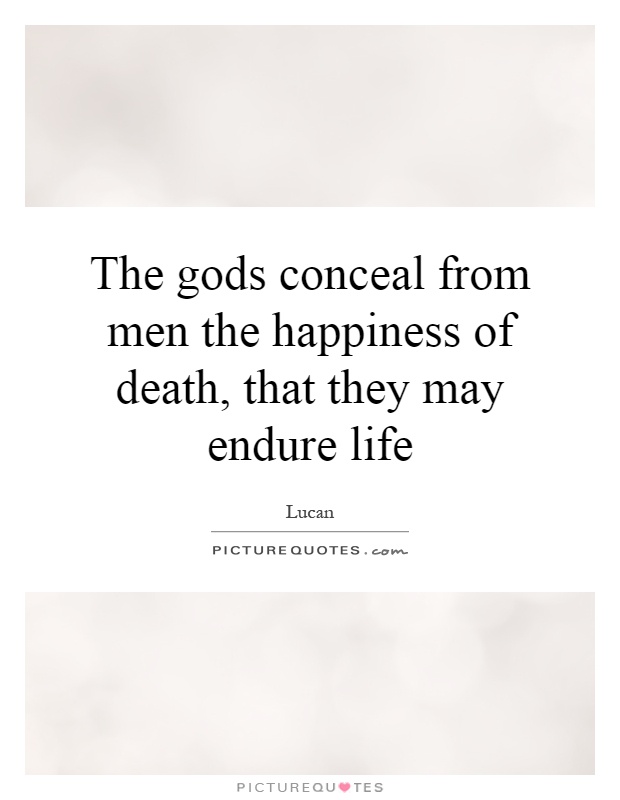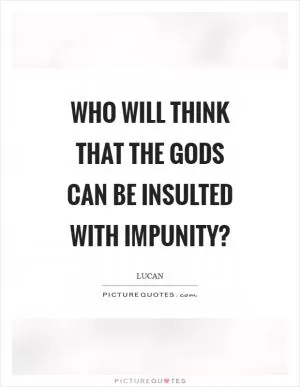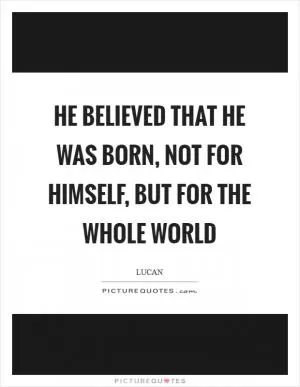The gods conceal from men the happiness of death, that they may endure life

The gods conceal from men the happiness of death, that they may endure life
In Lucan's epic poem "Pharsalia," the theme of the gods concealing the happiness of death from men in order to make them endure life is a central and recurring motif. Lucan, a Roman poet who lived during the first century AD, explores the idea of mortality and the struggle for power in his work, and this particular concept plays a significant role in shaping the narrative and the characters' motivations.The gods in Lucan's poem are portrayed as capricious and indifferent to the suffering of mortals. They manipulate events and individuals for their own amusement, often causing chaos and destruction in the process. The idea that the gods conceal the happiness of death from men is a reflection of the cruel and arbitrary nature of the divine beings in Lucan's universe. By denying mortals the release of death, the gods force them to endure the hardships and trials of life, testing their resilience and fortitude.
One of the most striking examples of this theme in "Pharsalia" is the character of Cato, a stoic philosopher and statesman who chooses to take his own life rather than submit to the tyranny of Julius Caesar. Cato's decision to commit suicide is a defiant act of resistance against the gods and their cruel machinations. He rejects the false promises of immortality and instead embraces the finality of death as a way to escape the suffering and injustice of the world.
The gods' concealment of the happiness of death also serves to highlight the futility of human ambition and the transience of power. Throughout the poem, characters strive for glory and conquest, only to be ultimately defeated by the forces of fate and destiny. The gods' manipulation of events and their refusal to grant mortals the release of death underscore the ephemeral nature of human existence and the inevitability of mortality.
Overall, the theme of the gods concealing the happiness of death from men in order to make them endure life is a powerful and thought-provoking concept in Lucan's "Pharsalia." It serves as a reminder of the harsh realities of the world and the limitations of human agency in the face of divine intervention. Through this theme, Lucan explores the complexities of mortality, power, and the struggle for meaning in a chaotic and unpredictable universe.












 Friendship Quotes
Friendship Quotes Love Quotes
Love Quotes Life Quotes
Life Quotes Funny Quotes
Funny Quotes Motivational Quotes
Motivational Quotes Inspirational Quotes
Inspirational Quotes